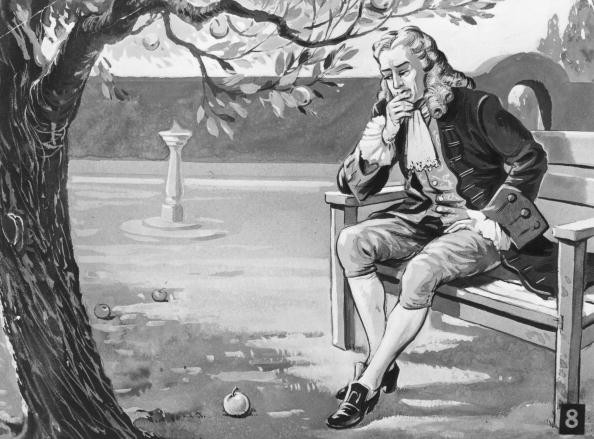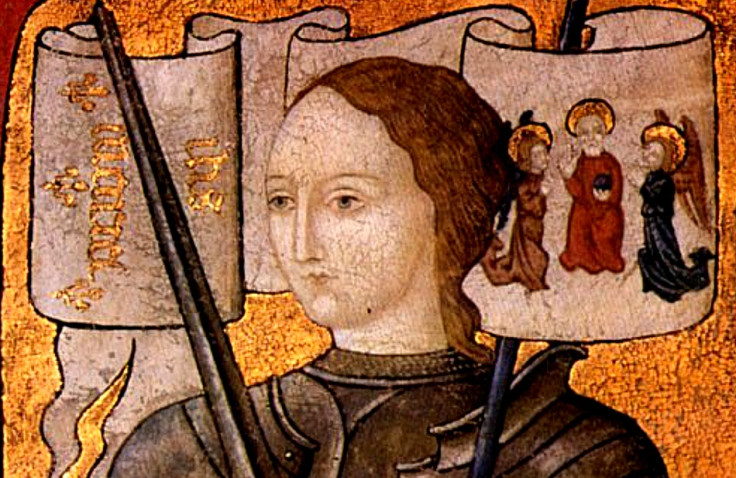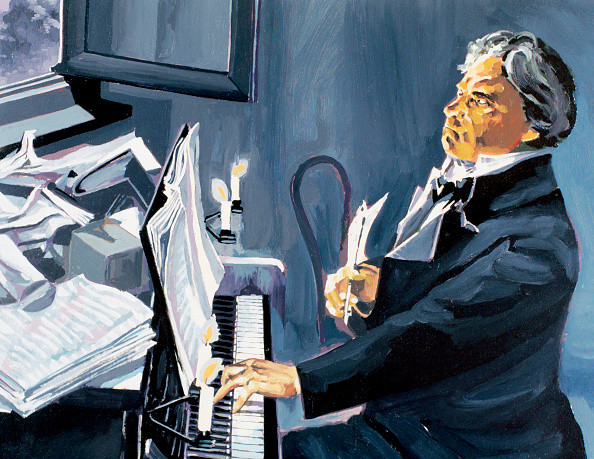Joan of Arc, Julius Caesar and Beethoven: Meet historic figures with modern disorders
Asperger's, epilepsy and schizophrenia could have guided the famous minds on their missions.

Their names will forever be remembered in school books for their actions or their contributions to science and culture, but there is also a darker side to the story of some of the world's most iconic historic figures. Research into their lives suggest some illustrious men and women could have suffered from conditions such as schizophrenia or Asperger's syndrome - and this could have guided them on their missions.
Some famous people from the past were diagnosed posthumously, and in most cases, this "diagnosis" is still only a guess on scientists' part.
Indeed, they do not have access to sufficient medical data and can only rely on historical sources, accounts from the period and testimonies of witnesses. In many cases, these people lived at a time when their condition was unknown and/or not officially diagnosed.
Yet, there is now a form of consensus in the scientific community about the following historical figures.
Albert Einstein & Isaac Newton
Albert Einstein, like fellow scientist Isaac Newton, is often described as having been on the autistic spectrum, and in particular, of having suffered from Asperger's syndrome.
The most significant study published about these two men was written by scientists from Oxford and Cambridge University in 2003 analysed the personality traits of both men of science, showing they displayed three symptoms of Asperger syndrome. Limited but obsessive interests, difficulties to communicate with others and problems with social interactions and relationships in general.
Asperger's syndrome is defined by the National Autistic Society "as a lifelong developmental disability that affects how people perceive the world and interact with others".
Unlike other autistic conditions, people with Asperger's tend not to have learning disabilities but they do have a number of specific learning difficulties. Speech is usually less of a problem for them but they may still have difficulties with understanding and processing language.

The study highlighted elements that coincide with this last "symptom" of Asperger's. Indeed both Einstein and Newton really struggled to interact with others, including their students. They had few friends. Newton apparently barely spoke, while Einstein could be very repetitive and confusing in what he said.
Julius Caesar
Many texts have been written about the actions of the great Julius Caesar by his contemporaries. Some mention in passing that Rome's dictator in perpetuity suffered from mysterious affliction in the years preceding his assassination – which left him weak and in some instances, unable to participate in battle.

Ancient writers describe a number of symptoms that have for many years been associated with epilepsy. According to Appian, Caesar suffered regularly from "convulsions". Plutarch, one of the author who wrote most extensively about Caesar, says he collapsed while on campaign in Cordoba, in 46 B.C, while Suetonius talks about "fainting fits". All these accounts seem to corroborate an epilepsy diagnosis.
Based on these sources, scientists believe Caesar has epileptic seizures at least on four recorded occasions: while listening to an oration by Cicero, in the Senate while being offered the Emperor's Crown, and during military campaigns in Thapsus and in Cordoba (the one detailed by Plutarch).
However, a recent study in Neurological Sciences indicated another explanation could be possible. Julius Caesar could have suffered from a a series of "mini-strokes" in the last years of his life, which damaged his health and mental well-being.
Joan of Arc
Joan of Arc remains one of the most fascinating figure in all of European Medieval history and much has been written about her "visions" and the "voices" of God and angels which she claimed to have heard and which brought her to her tragic end on the stake.

Popular theories today are that she might have suffered - like Julius Caesar - from epileptic seizures, as they sometimes can prompt auditory or visual hallucinations. A recent study published in the journal Epilepsy and Behaviour suggests Joan of Arc may have suffered from a type of epilepsy that affects the part of the brain responsible for hearing: a condition known as "idiopathic partial epilepsy with auditory features (IPEAF). The fact she reported the sound of bells often triggered her revelations is also consistent with this diagnosis as sounds can act as a cue for seizures to occur.
Other studies have hypothesised that she suffered from schizophrenia, a psychiatric disorder. The American Psychiatric Association's Diagnostic Manual criteria for the diagnosis of schizophrenia states that "the most prominent characteristics of the disease are hallucinations, delusions, and disorganization, which may lead to dangerous or bizarre behaviour".
So the definition of schizophrenia certainly fits with her visions and voices and the fact it led her on a grandiose, yet somewhat dangerous path.
Ludwig Van Beethoven
One of the most famous composer of all times potentially suffered from bipolar disorder. Beethoven left us some of the world's most beautiful symphony but he infamously became deaf at the age of 28, preventing him from listening to his dear music.

In a literature review published in the New England Medical Journal, scientists discuss the different ailments and chronic illnesses that plagued the musician throughout his life, showing that his deafness was only one of the health problems he encountered.
Beethoven is though to have suffered from a severe depression, which may have led him to turn to alcohol. Less known is the fact his impressive creativity was triggered by a drive and an energy that is actually more consistent with someone afflicted by bipolar disorder rather than by depression alone. At times, the composer was suicidal, at others he was hypomanic — in a state of complete euphoria, he could compose several different works simultaneously.
© Copyright IBTimes 2025. All rights reserved.






















